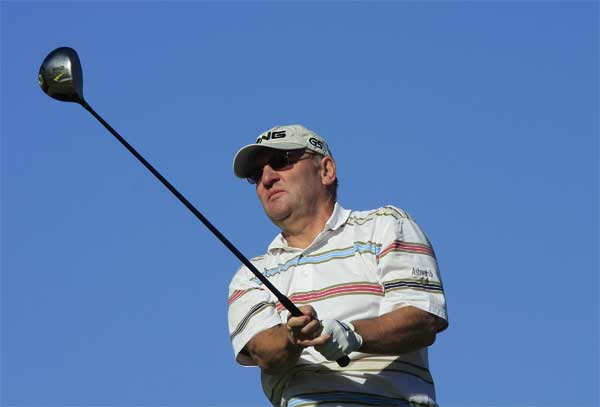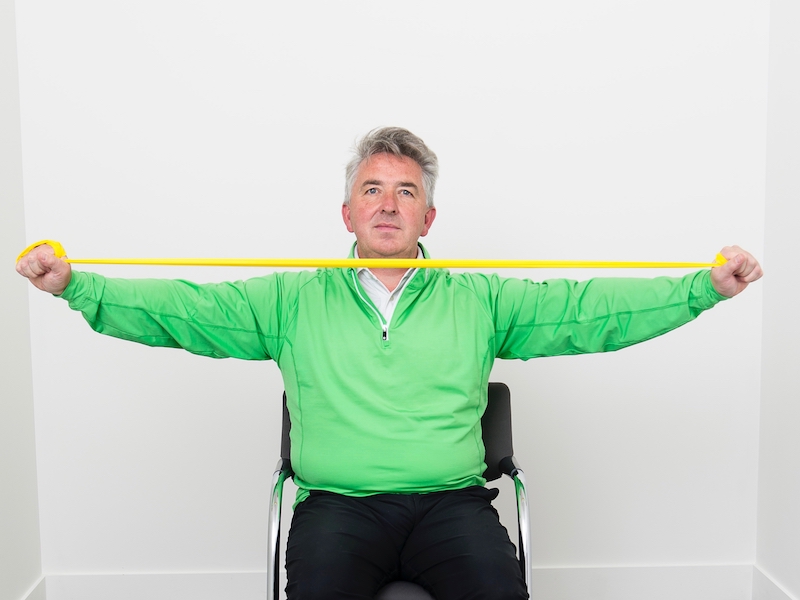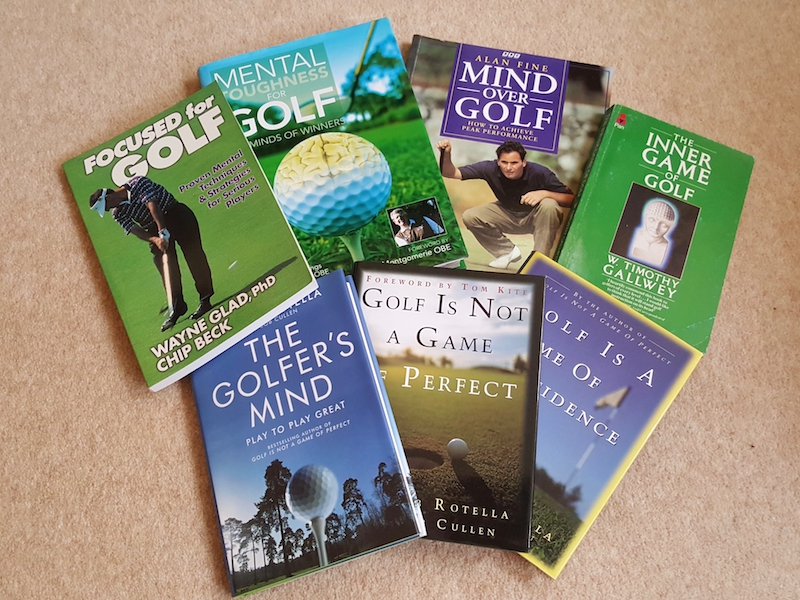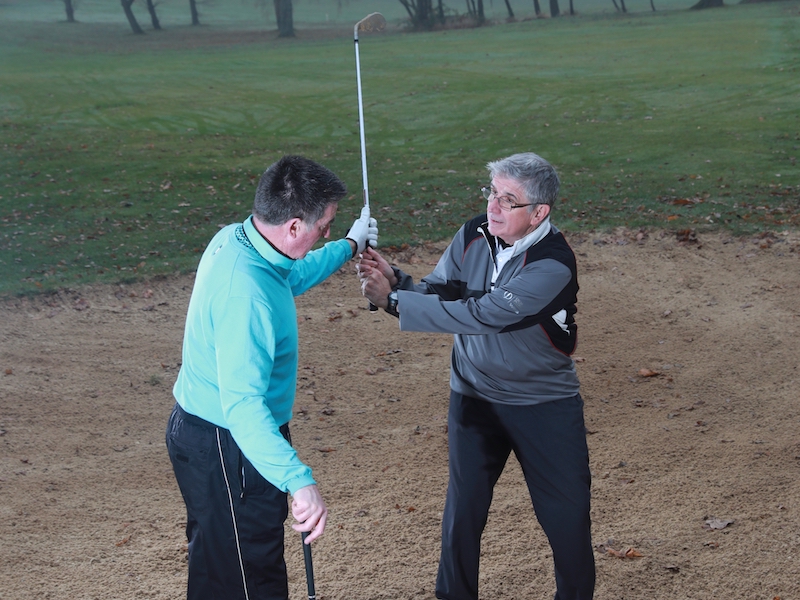Over 50s golfers: 4 ways to stay on top of your game
Now in his mid-50s himself, Jeremy Ellwood suggests 4 key ways to help over 50s golfers stay on top of their games…

Now in his mid-50s himself, Jeremy Ellwood suggests 4 key ways to help over 50s golfers stay on top of their games…
Over 50s golfers: 4 ways to stay on top of your game
The advancing years may typically trigger a decline in one part of our golf games or another, whether reduced club speed leading to loss of distance or the short putts perhaps no longer being despatched with quite such confidence and ease. But most over 50s golfers – certainly if you’re like me – aren’t ready just yet to believe or accept that their best golfing days lie firmly behind them.
They don’t have to either, but as with most things in life, it may require a little extra work or discipline in a few key areas to keep things running smoothly. Here are four ways to help over 50s golfers remain suitably serious about their golf games from the so-called ‘wrong’ side of the big 5-0 divide…
Exercise and stretching The effects of sarcopenia, in which skeletal muscle mass and strength begin to decline from the age of 30, mean we have to do something about it if we want to retain the levels of muscle strength and flexibility required to keep playing good golf.
I guess the irony is that strength and flexibility exercises become more and more important at a time in life when many feel less inclined to do them! But if you’re still serious about your game, well, it may require a little extra effort and dedication in this area.

A couple of years ago, we produced a series of short articles and videos with a trained physiotherapist offering simple but effective ways to increase your exercise levels, including some exercises you can even do from the comfort of your chair using a resistance band. Check out all five videos here…
Get the Golf Monthly Newsletter
Subscribe to the Golf Monthly newsletter to stay up to date with all the latest tour news, equipment news, reviews, head-to-heads and buyer’s guides from our team of experienced experts.
Warm-up exercises for the over 50s golfer
Exercises from the comfort of your chair
Resistance band swing exercises
Post-round cool down
Health supplements The health supplement market in the UK is a congested one, with all kinds of products seeking to relieve and alleviate the increasing aches and niggles of older adults and others. One new Icelandic product that launched in the UK last August is Benecta, a natural powdered supplement in capsule form based on short-chain chitosan extracted from crustaceans.
In a survey of 465 UK golfers aged 50+ undertaken by Sports Marketing Surveys Inc, an eye-catching 81 per cent reported fewer aches and pains after taking Benecta, while two-thirds thought it had even helped them play better golf.

In Iceland, sales have tripled year on year and the UK now has a significant, established customer base using Benecta on a regular basis. Anecdotal evidence would therefore suggest it may be one to try if the aches and niggles have been on the rise. Find out more at benecta.co.uk
A new mental approach Some of us lean more readily towards the ‘glass half full’ side, while others reside more naturally on the ‘glass half empty’ side. It can be easy to slip towards more of the latter mindset as you get older and it becomes tougher to play and score how you once did.
Steps one and two above (exercise and supplements) could both go some way to stabilising or even reversing the decline to a degree, but a different mental approach can also go a long way as it may simply be that you need to accept that you are no longer able to reach certain holes with ease, or boss the par 5s with raw power.

Common sense comes into play here - if you simply can’t reach the green, there’s no point thrashing at it wildly, so why not rely instead on that wily and deadly short game that years of experience have brought you?
Try to find something positive in every round too, whether it’s that one glory shot or putt, or even just the realisation of what you need to work on between now and your next round to perform better next time than you did today.
Notwithstanding your desire to still play serious golf, perhaps most important of all, it’s worth remembering that the game is supposed to be fun, and there are far, far worse ways to spend three or four hours of your time even if your game is not at its best.
Take a lesson They say you can’t teach an old dog new tricks, but I’m not sure that’s necessarily true if there’s someone there to give you the old dog the right advice. Admittedly, it’s pretty unlikely that your swing is going to change drastically later on in life unless you have hours and hours to devote to it - especially if you’ve been playing the game for many years.

But your local PGA pro will have seen countless golfers of all ages over the years and will almost certainly be able to help you find a way to improve certain aspects of your game still, or perhaps suggest a new move that won’t put such a strain on certain parts of your body.
If you’re struggling to maintain your form, or seem to be going backwards, don’t spurn the expertise available – it could just lead to an unexpected Eureka moment for you and your golf.
Articles created in partnership with Benecta.
-
 14 Big Names Who Missed The Cut At The Masters
14 Big Names Who Missed The Cut At The MastersAn exciting prospect is in-store over the weekend at The Masters, where a number of players missed the cut at Augusta National
By Matt Cradock Published
-
 Why Rory McIlroy Is The Man To Beat At The Masters
Why Rory McIlroy Is The Man To Beat At The MastersWe look at three reasons why Rory McIlroy is in the driver's seat for the Green Jacket this weekend
By Elliott Heath Published